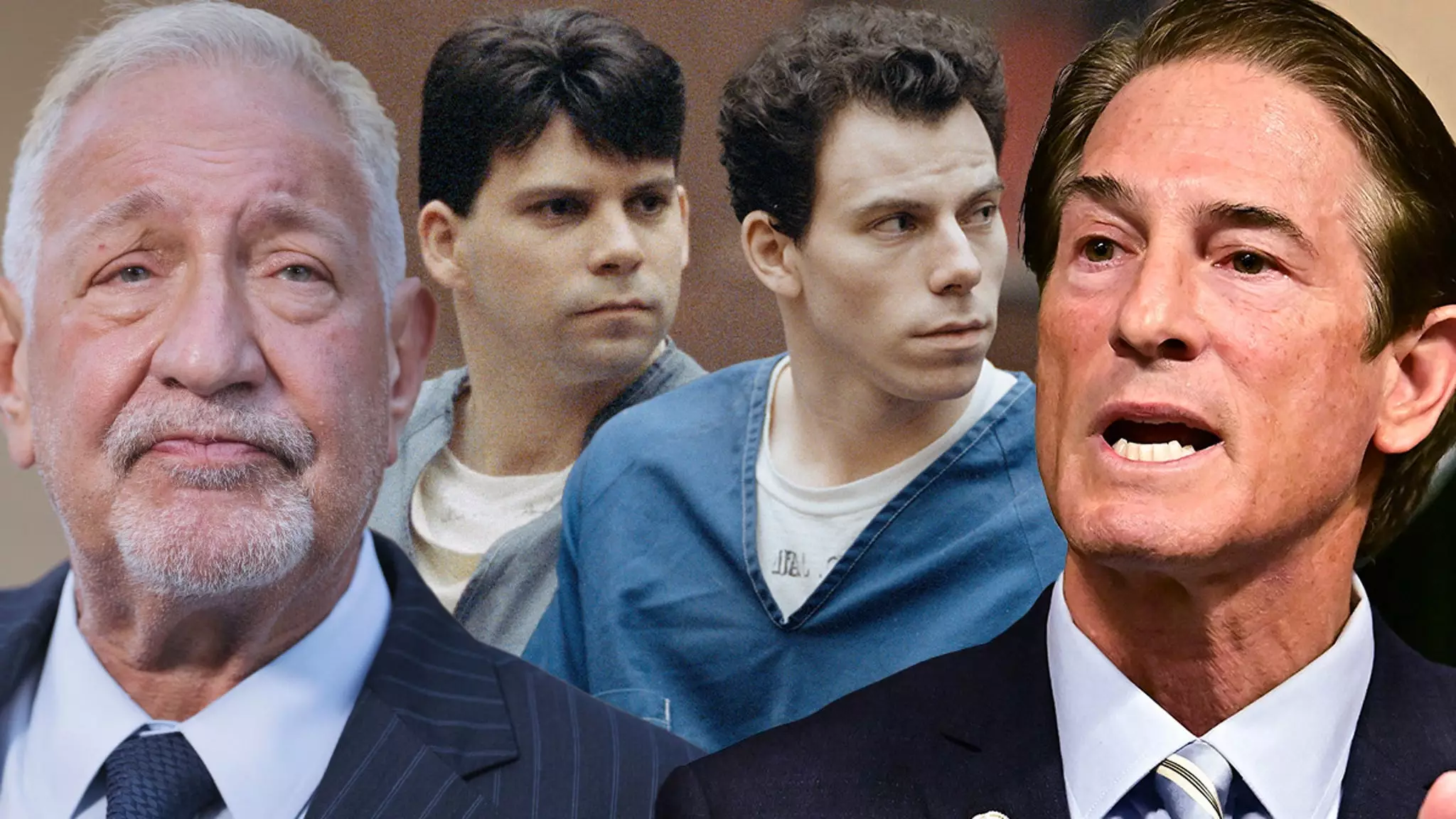In a legal drama that continues to captivate and polarize public opinion, Los Angeles County District Attorney Nathan Hochman has firmly refused to recuse himself from the controversial Menendez brothers case. This case, rooted in the shocking murders of their parents in 1989, has been a persistent source of dialogue around issues of justice, trauma, and the legal system’s perceived failings. Hochman’s unwavering position comes as their attorney, Mark Geragos, vocally petitions for his dismissal owing to supposed conflicts of interest. The district attorney’s rebuttal not only highlights his commitment to the judicial process but also raises questions about the ethics of legal tactics employed by the defense team.
Hochman asserts that he finds no legal grounds for recusal, characterizing Geragos’ motion as a bid to evade grappling with the substance of the case—specifically, the resentencing of Erik and Lyle Menendez. This reluctance to recuse himself, while based on legal formalities, cultivates a sense of tension, suggesting deeper fissures within the moral and ethical realms of the case. Is this a principled stand, or is it indicative of a broader struggle within the justice system where personal histories, sensationalism, and community sentiment clash?
Trauma and Its Echoes: The Menendez Family Narrative
At the heart of the case is the intense and harrowing narrative surrounding the Menendez family. Families that have experienced such traumatic events often find themselves trapped in a cycle of public scrutiny and personal pain, further exacerbated by high-profile legal battles. The Menendez brothers claim Hochman’s actions, particularly his decision to present jarring crime scene photos during a court hearing, have compounded their familial trauma—a claim that brings into focus the ethical obligations of prosecutors to consider the emotional and psychological impact of their procedural choices.
Bryan Freedman, representing the Menendez family, has drawn a line in the sand, criticizing Hochman for what he calls a listening failure to the lived experiences of victims and their families. He argues that Hochman’s public persona, marked by television appearances and social media engagement, is a misguided distraction from the pressing realities of crime and justice in Los Angeles. This brings forth an essential conversation around the intersections of legal accountability, media influence, and the psychological ramifications of crime—one that often gets lost amid the courtroom theatrics and legal jargon.
The Stakes: Resentencing and Redemption
As the Menendez brothers prepare for their upcoming court hearing, the stakes have never been higher. They are not merely fighting for their freedom; they are embroiled in a complex web of emotional narratives, public opinion, and legal nuances. Hochman’s resistance signals a prioritization of prosecutorial power over the possibility of restorative justice, which many believe would be more beneficial to the community and the victims involved—a consideration strikingly absent from Hochman’s rhetoric.
The impending hearing will not only address the motion for Hochman’s recusal but also dive into the admissibility of a crucial risk assessment report. This report, mandated by Governor Gavin Newsom, aims to evaluate the potential for rehabilitation in the Menendez brothers. In the eyes of many, this represents a significant step towards understanding the full scope of human behavior influenced by past trauma. The insistence on adhering to a punitive narrative capable of overshadowing this dimension raises concerns about a justice system that may overlook the rehabilitative second chances so many individuals deserve.
Public Perception: The Power of Media in the Legal Sphere
The Menendez case illuminates broader societal discussions regarding justice and accountability, with public sentiment shaping, and sometimes overshadowing, legal decisions. The media’s role cannot be underestimated, as narratives crafted in press releases and sensational stories dictate public perception of the brothers and their plight. Hochman’s posturing as a tough prosecutor feeds into this narrative, yet it also invites criticism for potentially misrepresenting the complexities of trauma and guilt.
Moreover, the Menendez brothers’ lawsuit seeking a new trial based on newly discovered evidence injects another layer of intrigue. Many people are resonating with the narrative of redemption and the possibility of reform, while advocates for victim’s rights express concerns about leniency towards high-profile defendants. Such compelling dualities prompt a reevaluation of what justice means in contemporary society—a reflection of the ongoing struggle between accountability and understanding.
In navigating the intricacies of the Menendez case, we confront not only a legal battle but also the profound moral questions that arise when we attempt to reconcile trauma, redemption, and the scarred history of familial violence. The stakes are deeply personal, yet they ripple outwards into our collective consciousness, reminding us of the fragile balance between justice, rehabilitation, and the enduring quest for truth.

